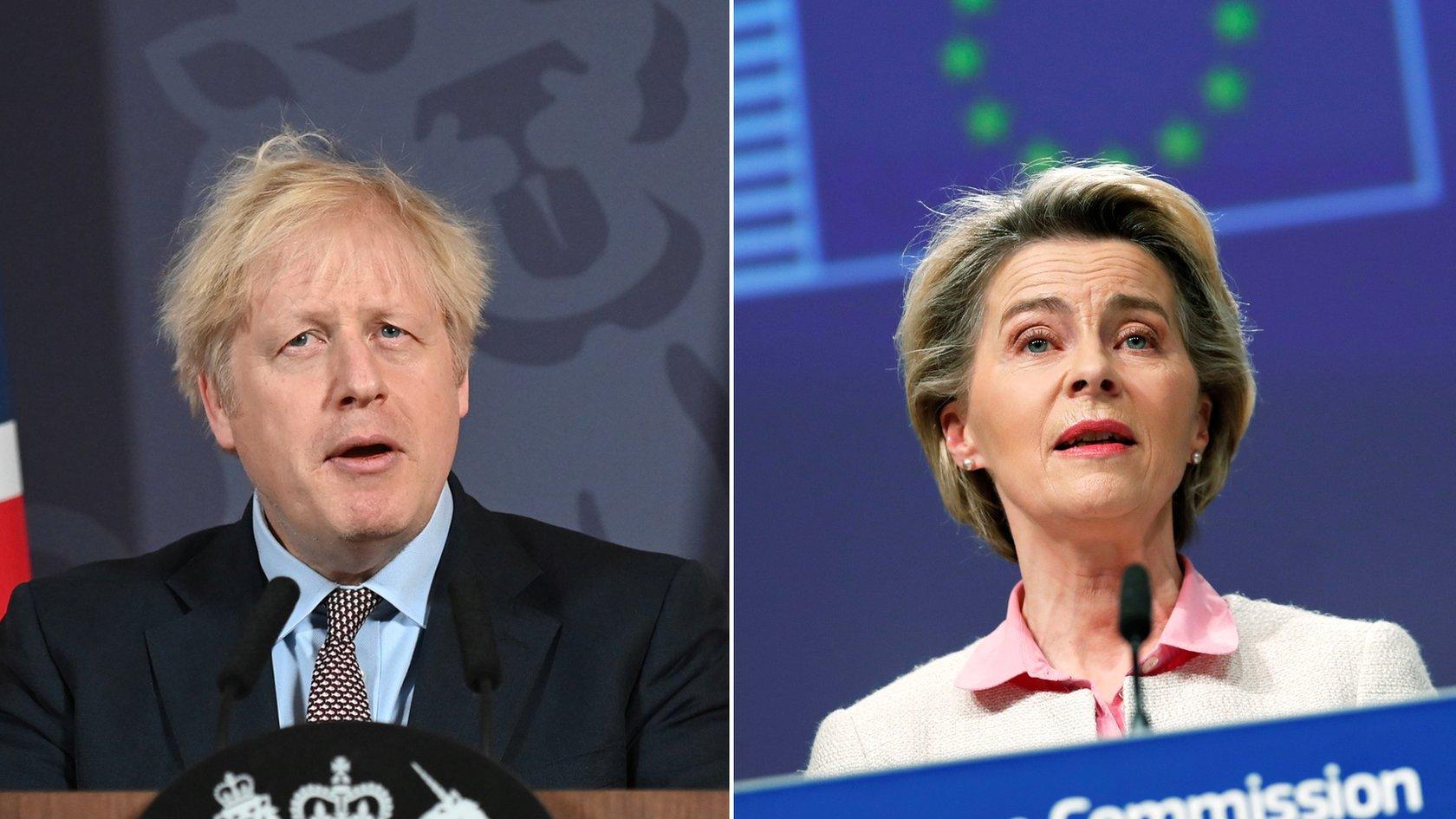Brexit: UK and EU can have 'special relationship', says Michael Gove
- Published
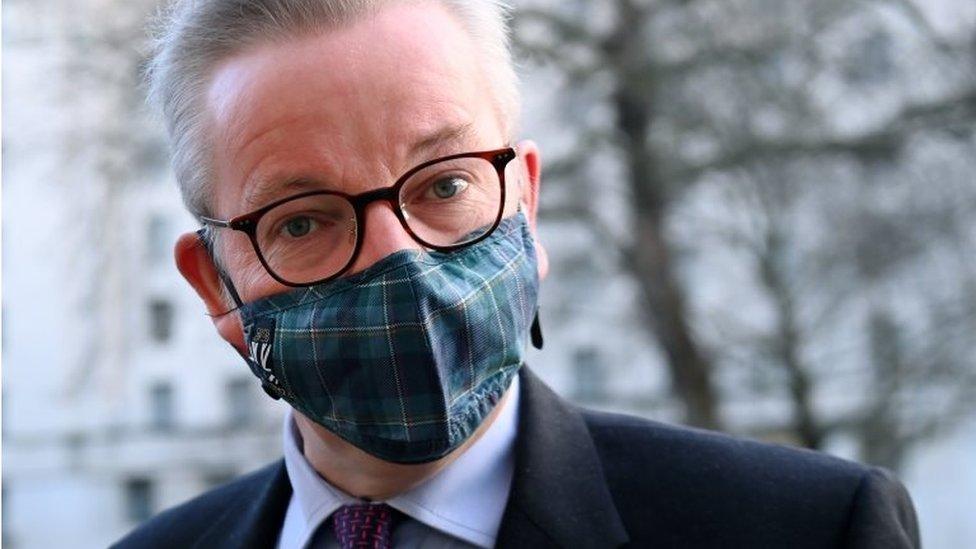
Michael Gove said he has seen "seen old friendships crumble" since the Brexit vote
The UK and EU will be able to enjoy a "special relationship" as a result of the post-Brexit trade deal, Cabinet Office Minister Michael Gove has said.
Writing in the Times, external, Mr Gove said he hoped the agreement will also see politics move away from the bitterness surrounding the 2016 referendum.
He wrote: "We can now embark on a new, more hopeful, chapter in our history."
It comes as EU ambassadors received a Christmas Day briefing on the trade deal from EU negotiator Michel Barnier.
Mr Barnier updated them on the agreement, which was reached on Christmas Eve after months of fraught talks on issues such as fishing rights and business rules.
MPs will vote on the deal in Parliament on 30 December, with the UK set to exit existing trading rules on 31 December.
A 1,246-page document, which has been published on the UK government's website, external, sets out the post-Brexit trade deal with the EU and includes about 800 pages of annexes and footnotes.
Writing in the Times newspaper, Mr Gove, who was a leading campaigner for the Brexit vote in the 2016 referendum, said he "won't deny it's been difficult" for many people since then.
"Friendships have been strained, families were divided and our politics has been rancorous and, at times, ugly. Through the past four years, as a politician at the centre of this debate, I've made more than my share of mistakes or misjudgements, seen old friendships crumble and those closest to me have to endure pressures they never anticipated."
He said he had felt "conscious of a responsibility" to deliver Brexit, adding: "I asked people to vote Leave so they could have their voices heard."
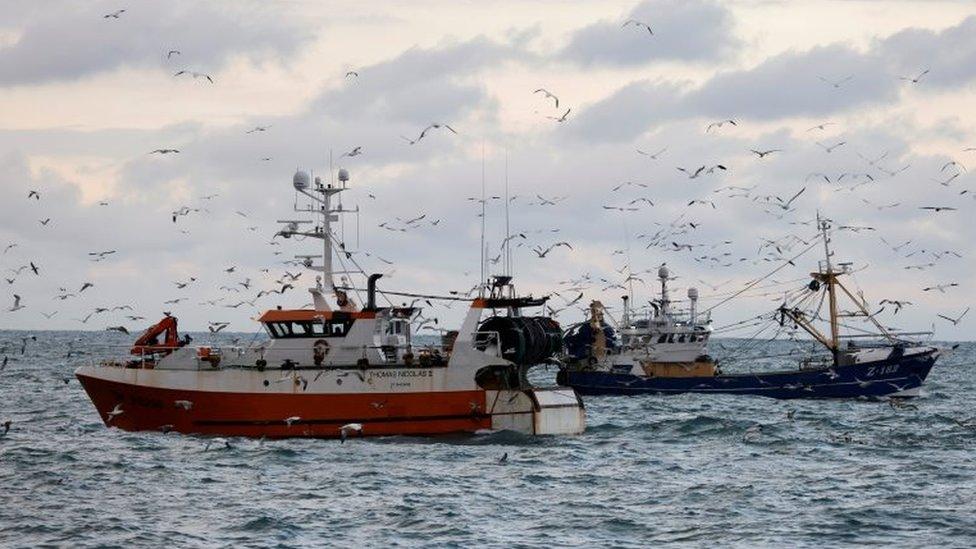
One of the most difficult issues in the negotiations was fishing
Mr Gove said the deal would give UK businesses "certainty and the ability to plan for growth and investment".
"We can develop a new pattern of friendly co-operation with the EU, a special relationship if you will, between sovereign equals," he added.
"The greatest prize, however, is the chance now to renew our country and help it to recover from the ravages of the Covid-19 pandemic in a spirit of shared endeavour and solidarity. We have a duty to spread opportunity more equally across the UK. Outside the EU, with a good trade deal in place, we can tackle the injustices and inequalities that have held Britain back."

The basics
A Brexit deal has been agreed, days before a deadline. It means that the UK and the EU can continue to trade without extra taxes being put on goods - but we don't know all the details yet.
What took so long? The UK voted to leave the EU in 2016 and actually left on 31 January 2020, but leaders had until the end of 2020 to work out a trade deal.
There are big changes ahead. Although it's a trade deal that has been agreed, there will also be changes to how people travel between the EU and UK, and to the way they live and work.

Prime Minister Boris Johnson said the deal will "give certainty to business, travellers, and all investors in our country".
European Commission President Ursula von der Leyen described the agreement as "fair" and "balanced", saying it was now "time to turn the page and look to the future".
The European Parliament needs to ratify the deal, which will define the future relationship for decades, but it is unlikely to do so until the new year.
Liberal Democrat leader Ed Davey: "This look a very bad deal"
Labour leader Sir Keir Starmer - who campaigned against Brexit - said the deal did not provide adequate protections for jobs, manufacturing, financial services or workplace rights and was "not the deal the government promised".
But with no time left to renegotiate, the only choice was between "this deal or no deal," he added.
Liberal Democrat leader Ed Davey, who also campaigned against Brexit, told BBC One's Breakfast the post-Brexit trade deal meant more red tape "we all feared", "far more bureaucracy" and was a "defeat for those who wanted frictionless trade".
He said the deal was "bad for business", "less safe" for families and it was therefore "insupportable".
Conservative MP and former cabinet minister Theresa Villiers, who voted for Brexit, told BBC Breakfast that "many prime ministers" had returned from negotiations Brussels with deals that appear to "do the right thing and then closer scrutiny demonstrates that there are not as good as first billed".
"I hope that we have finally seen the pattern broken and I hope that this is a deal that I can support, but it is important that we scrutinise that detail carefully and take some expert advice on it."
She said Tory colleague Bill Cash, of the European Research Group of Brexit-supporting Conservative MPs, had reconvened a group of lawyers - who had been highly critical of previous Prime Minister Theresa May's withdrawal agreement with the EU - to analyse the deal.
Related topics
- Published25 December 2020
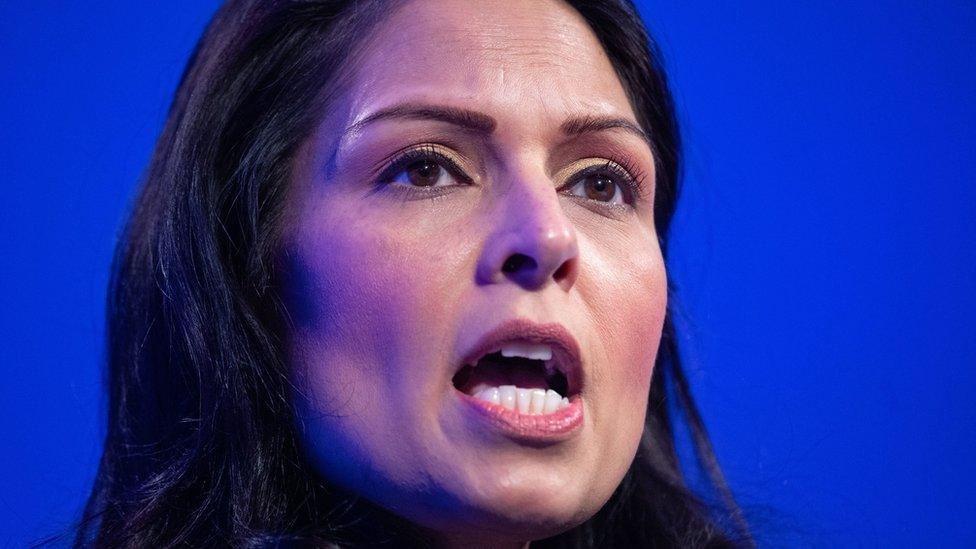
- Published25 December 2020
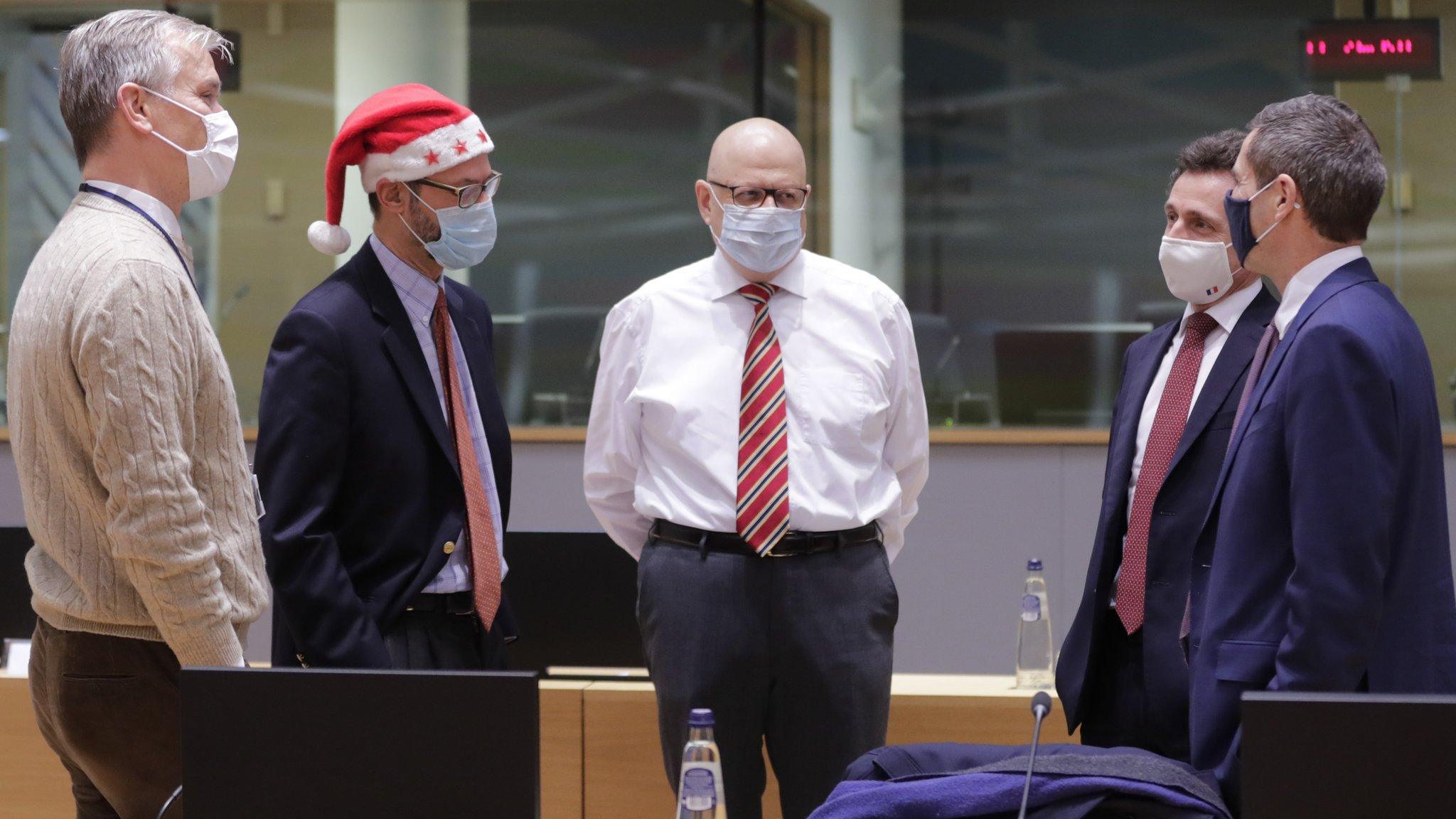
- Published24 December 2020
